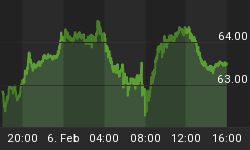Russia has taken some conflicting stances in its adoption of cryptocurrencies. As Russian interest in cryptocurrencies spikes, the government is scrambling to figure out how to deal with it.
Since 2014, the Russian government has gone back and forth in its ideas on how it will regulate cryptocurrencies, even proposing an outright ban on cryptos. Almost immediately followed by a change of heart. It is clear that Russia is determined to jump ahead of the pack in supportive regulation, but simply can’t figure out how to do it without addressing the potential threat to citizens involved in speculative trading.
Russia’s deputy finance minister Alexey Moiseev has noted that “For ordinary people, there’s no way because these are very dangerous investments that could lead to loss of money.” This seems to be the basis of the country’s latest discussions on the matter. Russian officials have suggested that the country will ban crypto-trading for “normal people,” suggesting that only “qualified” investors will be able to participate.
Moscow Stock Exchange to trade cryptocurrencies
This comes on the coattails of an announcement that the Moscow Stock Exchange plans to begin trading cryptocurrencies.
While the exchange is not prepared yet, the hope is that by early 2018, legislation will be passed to protect investors and facilitate the process. This landmark action will make the Moscow Stock Exchange the first stock exchange in the world to officially acknowledge Bitcoin and other digital currencies as an investable asset.
The term “qualified investor” is still unclear, but currently, it has been suggested that traders need at least 6 million rubles (US$104K) in personal assets or 200 million rubles (US$3.5M) for investment firms to fulfill that criteria.
Despite Russia’s conflicting back and forth statements, there is progress being made, both on the cryptocurrency front and on the blockchain wave.
Throughout the past few years, the Central Bank of Russia has been working tirelessly to incorporate blockchain technology into their system, even creating the “Masterchain.” While, more recently, an associate of President Vladimir Putin even announced his own cryptocurrency project, hoping to propel the country into Bitcoin mining dominance.
ICOs
Compared to China, Russia too is taking a very tepid approach on the subject of ICOs.
The Russian government recently issued a statement on ICOs, warning potential investors of the risks involved. China took a more drastic step by banning the trading of ICOs all together, at least until further legislation and regulation is created. This move left the market reeling, with a US$300 drop in Bitcoin within hours of the announcement.
Russia may be treading lightly on the regulation front, but in its clear-cut banking, trading, and tax-related regulations, the country has taken an especially firm stance:
Recently, Russian authorities targeted three men who had allegedly sold over 500-million rubles worth of Bitcoin without securing the licenses necessary to do so. The men were charged with “illegal banking” but it was essentially broken down to tax evasion. Authorities caught on to these men through suspicious bank cards and SIM cards apparently linked to specific bank accounts tied to these individuals.
While the legal framework is still being built, the Russian government is in a curious position. Trading Bitcoin into rubles is still a legal gray area, so it is unlikely that many lower profile cases will be charged.
Good or bad for crypto?
Moving forward, Russia has an excellent opportunity to take advantage of forming regulation ahead of much of the Western world. But, regulation could stand to have a dramatic impact on the marketplace. A ruling in favor of more supportive market oriented regulation could send cryptocurrencies to the next level. However, as seen with China, a more restrictive piece of legislation could put a huge dent in the markets. It could even start a chain reaction with other governments following crackdown-like regulation.
By Michael Kern via CryptoInsider.com















